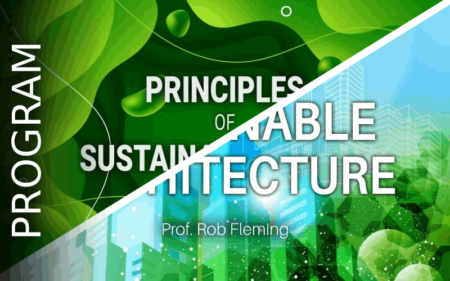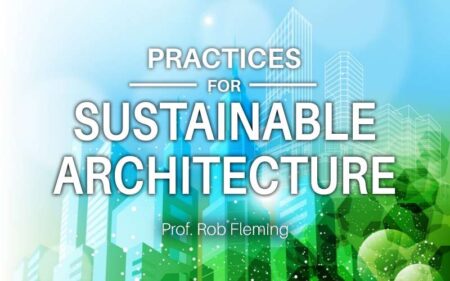Description
Learning Objectives
– Analyze the origins and founding principles of sustainability, synthesize the competing motivations of empathy and self-interest to build a foundation for a new sustainable world view.
– Combine the cultural, ecological, economic and experiential forces into holistic frameworks for sustainability
– Analyze the state of the world’s energy and environmental systems and value the critical role of built environment professionals in responding to that challenge.
Principles of Sustainable Design Course Structure
1. The Context for Sustainability: Beginning at the origins of the planet and finishing with a close study of world view shifts in the relatively short time frame of humanity on the planet.
2. Motivations for Sustainability: Resolving the duality between self-interest (greed) and empathy (altruism) as a means to build a new platform for “progress” in the 21st century.
3. Frameworks for Sustainability: Moving beyond superficial greening efforts to authentic sustainability that features the use of the holistic Quadruple Bottom Line.
4. meta Frameworks for Sustainable Design: The multi-lens and meta-paradigm approach of Integral Theory and Integral Sustainable Design.
5. Perspectives on Energy Systems: This module features a close look at energy system (non-renewable and renewable) from an Integral perspective in order to build energy literacy as a foundation for effective sustainable design.
6. Perspectives on Environmental Systems and their Impacts: This module will study the impacts of non-renewable energy sources and human progress around the globe as a means to build an expanded environmental literacy.
7. The Impact Project: The course ends with the completion of an “impact project.” where students will collaborate to design and implement a short project that addresses the myriad problems and opportunities presented by sustainability.
Certification
The course certificate by Build Academy could be purchased separately by people who complete the course. The two certificates available for the course are: basic, CEU-CPD. You can include the certificate in your CV and LinkedIn profile. We can also provide you with reference letters for job or school applications and promotions.
Professor
Prof. Rob Fleming, LEED AP

Rob Fleming is a registered architect with over 18 years’ experience of teaching, research and practice in sustainable design. He is the co-creator and Director of the award winning Master of Science in Sustainable Design Program at Philadelphia University. Rob is the author of Design Education for a Sustainable Future, a book focused on transforming design education in the 21st century. Rob is a Sustainability Fellow at Re:Vision Architecture in Philadelphia where he consults and facilitates integrated design charrettes.


